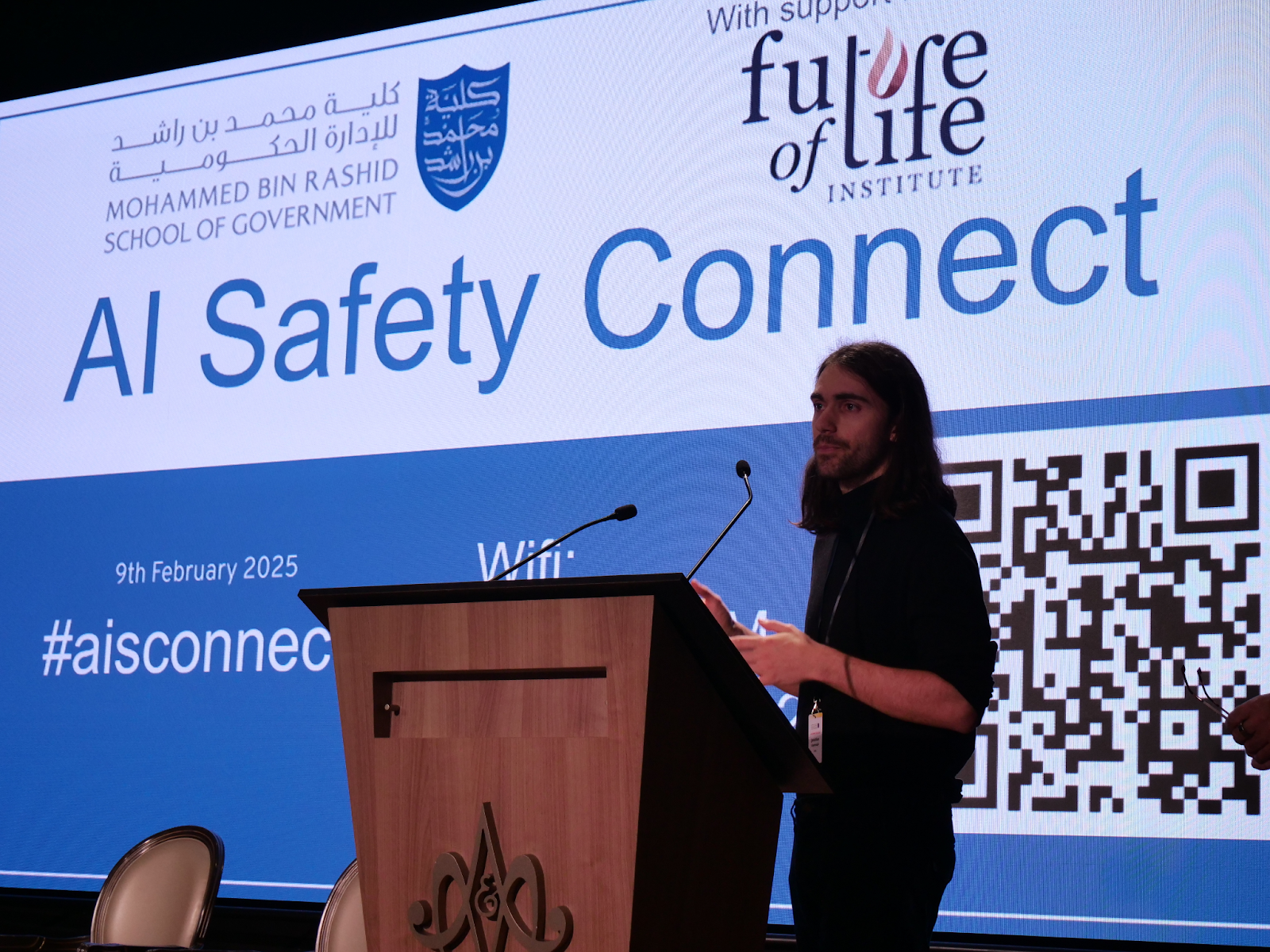

Partners: Mohammed Bin Rashid School of Government (MBRSG), Future of Life Institute (FLI), Apart Research, Beijing AI Safety Institute, NICT Tokyo Expert Support Center
On the sidelines of the French AI Action Summit, the Center for AI Safety (CeSIA) had the honor of leading the research work for the Global Risk and AI Safety Preparedness (GRASP) project, an ambitious initiative aimed at mapping the global AI safety landscape.
From October 2024 to March 2025, we conducted this international collaboration to develop the first structured database cataloging AI-related risks, existing solutions, and mitigation strategies, as part of an initiative led by the Mohammed Bin Rashid School of Government.
CeSIA teams wrote 90 articles outlining solutions and technical approaches in response to AI safety issues, as well as risk mitigation strategies.
This methodical approach is based on a clear analytical framework for categorizing risks and associated solutions, facilitating the identification of research gaps and providing policymakers with an in-depth understanding of technical challenges.
On February 9, 2025, CeSIA co-organized the AI Safety Connect event, which brought together researchers and AI safety experts in a special forum ahead of the AI Action Summit. This gathering enabled in-depth discussions among international collaborators, including researchers from Chinese institutions.
The event was highly successful with participants and demonstrated the value of creating cross-border dialogue spaces on these critical issues.
Through GRASP, CeSIA established lasting partnerships with international research organizations, including Apart Research and the Beijing AI Safety Institute.
The project was part of the Global Partnership on AI (GPAI) ecosystem, serving Project SAFE managed by NICT's Tokyo Expert Support Center.
The project's success led to the creation of a public database accessible via an exploration tool, accompanied by a website presenting our mapping approach. The content generation processes developed provide a reusable foundation for future database expansion.
This infrastructure paves the way for ongoing documentation of AI safety solutions and risks, with possibilities for evolution adapted to the research community's needs.
CeSIA warmly thanks the Mohammed Bin Rashid School of Government for its leadership, the Future of Life Institute for its strategic support, as well as all our international partners and contributing researchers.